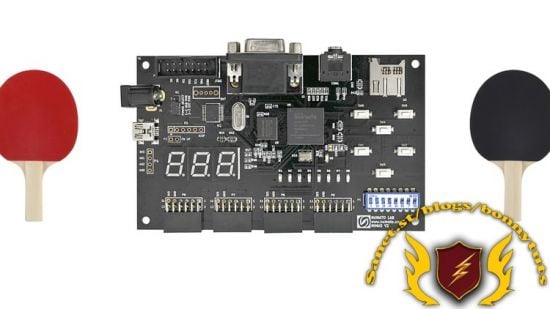
Published 6/2024
Created by Anas Fennane
MP4 | Video: h264, 1280×720 | Audio: AAC, 44.1 KHz, 2 Ch
Genre: eLearning | Language: English | Duration: 10 Lectures ( 1h 17m ) | Size: 687 MB
Design a system with VHDL, simulate, synthesize and test on FPGA
What you’ll learn:
Basic concepts of digital circuits: processes, registers, counters, if-then-else statements, concurrent statements, combinational and sequential circuits, …
Writing and understanding VHDL code
Simulation of HDL designs: understanding how to read waveforms and how to associate it to the VHDL code
Testing a design on FPGA
Analyzing a problem and thinking like a hardware engineer
Synthesizing a design on FPGA
Using a constraints file
Requirements:
Basic notions on digital electronics and VHDL are needed to get the most of this course
Description:
This course is designed to immerse you in the world of hardware engineering. The course will guide you through the process of converting requirements and needs into practical and efficient designs. You will explore the basic concepts of digital circuits and VHDL coding rules and syntax. Furthermore, the course will cover the use of constraints files, synthesis and simulation of HDL designs, enabling you to verify the correctness of your circuits before physical implementation. By the end of the course, you will have a comprehensive skill set to design, implement, and test digital systems. To achieve all of the above, we will design a Ping Pong game on FPGA. Two push buttons will be used by players to serve and return the ball to each other. Eight LEDs are used to emulate the ball. Only one LED is turned on at a time and it will travel through the eight LEDS either from left to right or from right to left depending on the last player who has hit the ball. When the ball reaches the most left or most right LED, the player has a specific amount of time to return it. If he fails, the game is paused, and his opponent gets a point. Then all LEDs turn on for one second at the same time. The ball stays at loser side and the game stays paused as long as the player has not pushed his button to serve the ball. After few successful exchanges, the speed of the game will increase, meaning that the ball will travel the LEDs at a higher speed and the players have less time to return the ball when it reaches most left or most right LED. Finally the game stops when either of the players have a score of 9.
Password/解压密码www.tbtos.com
转载请注明:0daytown » Learn FPGA design by practice: PING PONG game